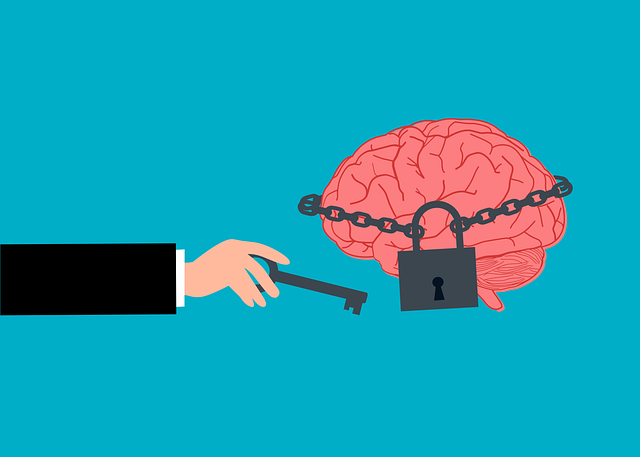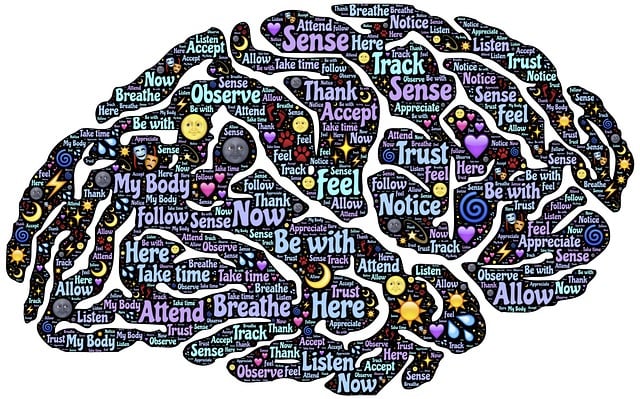Workplace issues and job stress significantly impact adults' mental health, driving the need for therapy as a crucial solution. Tailored therapy sessions teach effective mood management and enhance emotional intelligence, empowering individuals to handle pressures and improve work environments. Public awareness campaigns promote proactive self-care practices, normalizing conversations around mental health. Integrating therapy into dynamic work environments fosters employee well-being, improves job satisfaction, and reduces turnover rates through stress management workshops and compassion cultivation practices.
In today’s fast-paced work environment, understanding the impact of workplace issues and job stress on adults is crucial. This article explores effective self-care practices designed to combat the pervasive effects of stress, offering a comprehensive guide for professionals seeking to enhance their wellbeing. From recognizing red flags to integrating therapy for adults grappling with workplace challenges, we provide insights into achieving a holistic approach to adult wellness at work.
- Understanding the Impact of Workplace Issues and Job Stress on Adults
- Exploring Effective Self-Care Practices to Combat Stress
- Integrating Therapy for a Holistic Approach to Adult Wellbeing at Work
Understanding the Impact of Workplace Issues and Job Stress on Adults

Workplace issues and job stress significantly impact adults’ overall well-being and mental health. In today’s fast-paced and often high-pressure environments, many individuals struggle with managing their mood and maintaining emotional balance. These challenges can stem from various sources, such as heavy workloads, demanding deadlines, or even interpersonal conflicts within the workplace. As a result, workers may experience increased anxiety, depression, and burnout, which can hinder their productivity and overall job satisfaction.
Therapy for adults plays a crucial role in addressing these workplace issues and job stress. Through professional guidance, individuals can learn effective strategies for mood management, enhance their social skills training, and develop emotional intelligence. By mastering these skills, adults can better navigate challenging situations at work, foster healthier relationships with colleagues, and create a more positive and supportive environment. This, in turn, can lead to improved job performance and a higher quality of life.
Exploring Effective Self-Care Practices to Combat Stress

In today’s fast-paced world, stress has become an inevitable part of daily life, particularly for adults grappling with workplace issues and job stress. Exploring effective self-care practices is a proactive step towards managing this burden. Therapy, specifically tailored for adults, offers a safe space to navigate and overcome these challenges. By incorporating mood management techniques and stress management strategies, individuals can enhance their resilience and overall well-being.
Public awareness campaigns play a pivotal role in promoting these practices, shedding light on the importance of self-care outside and inside the workplace. These initiatives encourage open conversations about mental health, fostering an environment where seeking support is normalized. Through education and accessible resources, adults can learn to identify signs of stress and take proactive measures, ensuring they maintain a healthy balance between professional demands and personal well-being.
Integrating Therapy for a Holistic Approach to Adult Wellbeing at Work

In today’s fast-paced work environment, integrating therapy for adults’ workplace issues and job stress is more crucial than ever. A holistic approach to employee wellbeing recognizes that mental health is just as important as physical health when it comes to productivity and overall satisfaction. Therapy provides a safe space for individuals to explore and manage stress, anxiety, and other workplace challenges, fostering resilience and improving work-life balance. By incorporating compassion cultivation practices into the workplace, organizations can create an environment that supports emotional wellbeing, leading to increased job satisfaction and reduced turnover rates.
Stress management workshops organized by HR departments or external experts can be game-changers in helping employees cope with workload pressures and interpersonal challenges. These workshops often cover various techniques such as mindfulness exercises, cognitive behavioral therapy strategies, and effective communication skills. By learning and practicing these tools, adults can find anxiety relief, improve their ability to navigate workplace conflicts, and enhance their overall performance.
In light of the above discussions, it’s clear that workplace issues and job stress significantly impact adults’ wellbeing. By exploring effective self-care practices and integrating therapy as a holistic approach, individuals can better manage their mental health and enhance their overall satisfaction at work. Therapy for adults suffering from workplace issues and job stress is not just a luxury but an essential tool for navigating these challenges, fostering resilience, and achieving a healthier, more productive life.














